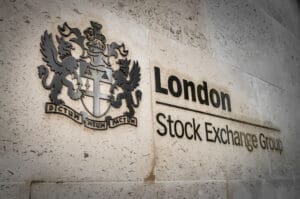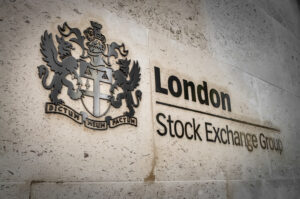
Rising concerns about inflation after the global surge in energy prices have fed through to stock and bond markets.
Government bond yields, which move inversely to bond prices, rose sharply today as economists forecast that inflation could peak above 5 per cent in the UK next spring.
Britain’s 10-year gilt yield jumped to 1.152 per cent this morning — its highest level since May 2019 — while equity markets in Asia, Europe and America retreated.
Gas prices have soared to all-time highs in the UK and Europe this week amid an international supply shortage. UK benchmark month-ahead gas prices surpassed 300p a therm for the first time ever yesterday and spiked as high as 407p a therm on this morning.
They later fell back after President Putin suggested that Russia would boost gas supplies to Europe. Prices remain almost eight times higher than a year ago and have more than doubled in the past month alone. This has also fed through to higher electricity prices, since gas-fired power stations provide the biggest share of Britain’s electricity generation.
Yields slipped back later in the session, with the UK’s 10-year guilt dropping to 1.079 per cent and the US Treasury benchmark 10-year yield easing from a three-month high to 1.5154 per cent.
Ole Hansen of Saxo Bank said that unless gas producers increased supplies, “the only other option is for prices to reach levels that trigger demand destruction, and that is the phase we have now entered”.
He warned that the result would be “a sharp reversal of the growth fest seen this past year and the realisation inflation is anything but transitory”.
The energy supply crisis has only bolstered investors’ apprehension around price growth as the global economy continues its patchy post-pandemic recovery.
In London, the FTSE 100 fell 1 per cent, or 67.56 points, to 7,009.54. On Wall Street, the S&P 500 was trading down 0.5 per cent, or 22.22 points, at 4,323.5 by mid-morning in New York. The Nasdaq had retreated 0.2 per cent, or 25.54 points, to 14,408.29. Europe’s Stoxx 600, which fell sharply before regaining some lost ground, was down 0.9 per cent.
Oil prices, which scaled three-year highs of more than $83 a barrel earlier this week, also remain elevated at more than $81 a barrel.
Economists at Bank of America have raised their projection for price growth in the UK on the back of rising energy costs. In a note published today, they forecast that the Consumer Prices Index would peak at 5.1 per cent in April next year; up from a previous forecast of 4.2 per cent, and considerably higher than the Bank of England’s central forecast of 4 per cent.
Robert Wood, UK economist at the investment bank, said: “We now assume a 45 per cent previous hike in the utility price cap in April 2022 compared to 25 per cent previously, faster pass-through of higher food costs, and 40 basis points higher non-energy goods inflation by end-2022 as higher costs feed through the supply chain.”
However, he said that inflation would fall sharply in the second half of next year on the back of an expected 12 per cent cut in utility prices in October 2022 and flattering base effects. “We assume inflation temporarily drops below the 2 per cent target in April 2023,” he said.
Read more:
Fears inflation could hit five per cent spook the markets
